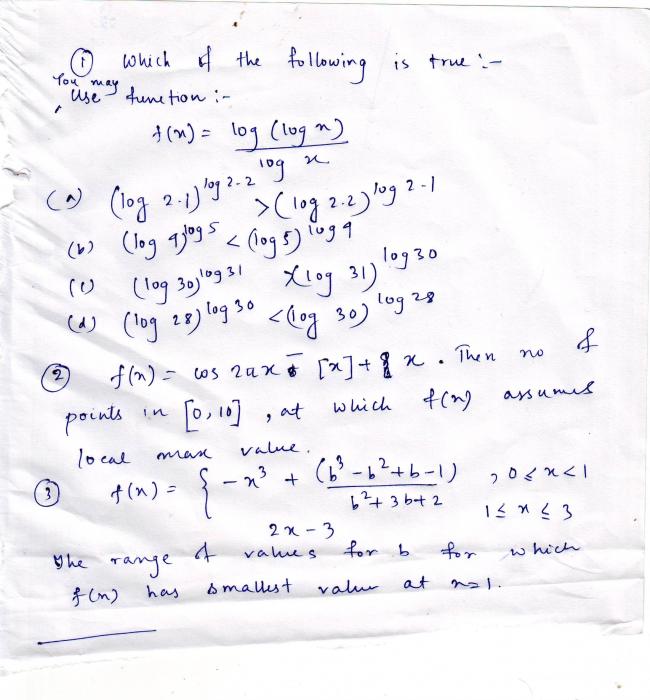Q1 the function :
f(x) = log(logx)logx
is increasing for x< ee(almost equal to 10)
and decreasing for x > ee
so for x≡(-∞,ee)
f(x') < f(y') (where x' < y') --------(1)
and for x≡(ee,∞)
f(x') > f(y') (where x' < y')-----------(2)
put x'=4 and y'=5 in 1st equation
and put x'=30 and y'=31 in 2nd equation
so answer is (b,c)
